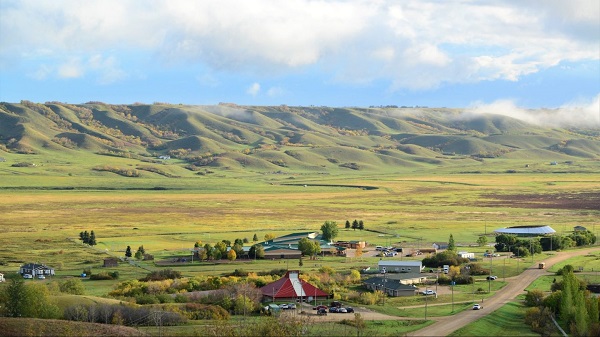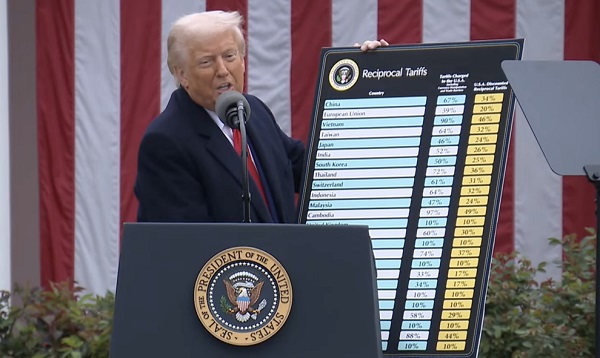Alberta
Alberta. The Best Province in a Nation in Trouble.

Submitted by Red Deer South MLA Jason Stephan
September 1 is Alberta Day. Alberta is a land of freedom and prosperity, welcoming all who desire to work and to serve, seeking happiness for themselves and their families. Alberta joined confederation and became part of Canada on September 1, 1905. Historically, Alberta has led Canada in key measures such as GDP per capita, business investment per worker, private sector employment, CPP contributions, equalization payments, etc. Alberta is the best.

Canada has benefited from Alberta more than Alberta has benefited from Canada. In this graph produced by the Fraser Institute, for its article titled Understanding Alberta’s Outsized Contribution to Confederation, it is estimated that Alberta businesses and workers, between 2017 to 2023, paid more than $244 billion to Ottawa than it received from Ottawa, dwarfing net contributions of the only two other contributing provinces, Ontario and BC, despite, in the case of Ontario, having a much larger population.
The biggest taker during this period was Quebec, receiving more than $327 billion from Ottawa than it paid. Many have written how Quebec and others “game” confederation to increase transfers from producers. Indeed, the current premier of Quebec said that his favorite thing about Canada is equalization.
While Canada has the potential to be the most free and prosperous country in the world, by objective measures it is not, and the flawed structure of “confederation”, and some who seek to exploit it to glut themselves on the labors of others, hold us back and drag us down. When the “redistribution” of wealth displaces the “production” of wealth as a ruling principle, we are in trouble and that is now.
Many are concerned that Trudeau’s Canada is a growing danger and threat to Alberta’s freedom and prosperity. That is true. Alberta is better off without Trudeau’s Canada. Trudeau’s Canada is a fiscal train wreck. Trudeau has smashed through a trillion dollars in debt, accumulating more debt than all Prime Ministers before him combined. This gross negligence, waste and disrespect will be burdens of our children long after they are gone. Canada now pays more in interest on its debt than it collects from the GST.
Prior to Trudeau, in 2014, Canada’s per capita GDP was 92% of the US. What is it now? In 2022, it is 72%, a 20% drop in less than 10 years, and getting worse. We are getting poorer, fast. It should not be this way, it does not need to be this way.
Canadians awake and alive to the truth of Trudeau’s Canada and where it is leading are rightly concerned and alarmed. But what to do? Some are leaving or have left.
Alberta has the highest per capita GDP in Canada, rejecting Trudeau’s woke, socialist values of mediocrity and virtue signaling, producing nothing. Trudeau’s Canada appears to resent Alberta with policies that single out Alberta, seeking to attack, hold back, or drag it down.
Do not count on many politicians to stand up for a “Fair Deal” for Alberta, because if Alberta gets a Fair Deal, then it means less handouts for others!
Let’s provide Albertans with the unbiased truth and facts surrounding “fiscal federalism”. Who is paying what, and who is getting what, directly or indirectly, from Alberta businesses and workers. Albertans should be supplied with the truth about what they are paying for and what Trudeau’s Canada is costing them. In this fall legislature I will be bringing forward a motion to get to these facts, even if some do not like it.
Let’s arm Albertans with more truth, and then trust them to lead, to know what is best. Let’s increase Alberta’s leverage for a Fair Deal. The less Alberta needs Canada, the more leverage Alberta has. There are many things that Alberta can do for Albertans better than Trudeau’s Canada.
Albertans need alternatives to Trudeau’s Canada; let’s prepare, insulate, and protect ourselves from this accelerating trainwreck, which unabated, will crash as sure as night follows day.
We cannot be complacent – less talk and more action.
Alberta is a blessed land of freedom and prosperity. We must be vigilant to keep it that way. Happy Alberta Day!
Alberta
Big win for Alberta and Canada: Statement from Premier Smith

Premier Danielle Smith issued the following statement on the April 2, 2025 U.S. tariff announcement:
“Today was an important win for Canada and Alberta, as it appears the United States has decided to uphold the majority of the free trade agreement (CUSMA) between our two nations. It also appears this will continue to be the case until after the Canadian federal election has concluded and the newly elected Canadian government is able to renegotiate CUSMA with the U.S. administration.
“This is precisely what I have been advocating for from the U.S. administration for months.
“It means that the majority of goods sold into the United States from Canada will have no tariffs applied to them, including zero per cent tariffs on energy, minerals, agricultural products, uranium, seafood, potash and host of other Canadian goods.
“There is still work to be done, of course. Unfortunately, tariffs previously announced by the United States on Canadian automobiles, steel and aluminum have not been removed. The efforts of premiers and the federal government should therefore shift towards removing or significantly reducing these remaining tariffs as we go forward and ensuring affected workers across Canada are generously supported until the situation is resolved.
“I again call on all involved in our national advocacy efforts to focus on diplomacy and persuasion while avoiding unnecessary escalation. Clearly, this strategy has been the most effective to this point.
“As it appears the worst of this tariff dispute is behind us (though there is still work to be done), it is my sincere hope that we, as Canadians, can abandon the disastrous policies that have made Canada vulnerable to and overly dependent on the United States, fast-track national resource corridors, get out of the way of provincial resource development and turn our country into an independent economic juggernaut and energy superpower.”
Alberta
Energy sector will fuel Alberta economy and Canada’s exports for many years to come

From the Fraser Institute
By any measure, Alberta is an energy powerhouse—within Canada, but also on a global scale. In 2023, it produced 85 per cent of Canada’s oil and three-fifths of the country’s natural gas. Most of Canada’s oil reserves are in Alberta, along with a majority of natural gas reserves. Alberta is the beating heart of the Canadian energy economy. And energy, in turn, accounts for one-quarter of Canada’s international exports.
Consider some key facts about the province’s energy landscape, as noted in the Alberta Energy Regulator’s (AER) 2023 annual report. Oil and natural gas production continued to rise (on a volume basis) in 2023, on the heels of steady increases over the preceding half decade. However, the dollar value of Alberta’s oil and gas production fell in 2023, as the surging prices recorded in 2022 following Russia’s invasion of Ukraine retreated. Capital spending in the province’s energy sector reached $30 billion in 2023, making it the leading driver of private-sector investment. And completion of the Trans Mountain pipeline expansion project has opened new offshore export avenues for Canada’s oil industry and should boost Alberta’s energy production and exports going forward.
In a world striving to address climate change, Alberta’s hydrocarbon-heavy energy sector faces challenges. At some point, the world may start to consume less oil and, later, less natural gas (in absolute terms). But such “peak” consumption hasn’t arrived yet, nor does it appear imminent. While the demand for certain refined petroleum products is trending down in some advanced economies, particularly in Europe, we should take a broader global perspective when assessing energy demand and supply trends.
Looking at the worldwide picture, Goldman Sachs’ 2024 global energy forecast predicts that “oil usage will increase through 2034” thanks to strong demand in emerging markets and growing production of petrochemicals that depend on oil as the principal feedstock. Global demand for natural gas (including LNG) will also continue to increase, particularly since natural gas is the least carbon-intensive fossil fuel and more of it is being traded in the form of liquefied natural gas (LNG).
Against this backdrop, there are reasons to be optimistic about the prospects for Alberta’s energy sector, particularly if the federal government dials back some of the economically destructive energy and climate policies adopted by the last government. According to the AER’s “base case” forecast, overall energy output will expand over the next 10 years. Oilsands output is projected to grow modestly; natural gas production will also rise, in part due to greater demand for Alberta’s upstream gas from LNG operators in British Columbia.
The AER’s forecast also points to a positive trajectory for capital spending across the province’s energy sector. The agency sees annual investment rising from almost $30 billion to $40 billion by 2033. Most of this takes place in the oil and gas industry, but “emerging” energy resources and projects aimed at climate mitigation are expected to represent a bigger slice of energy-related capital spending going forward.
Like many other oil and gas producing jurisdictions, Alberta must navigate the bumpy journey to a lower-carbon future. But the world is set to remain dependent on fossil fuels for decades to come. This suggests the energy sector will continue to underpin not only the Alberta economy but also Canada’s export portfolio for the foreseeable future.
-

 Catherine Herridge2 days ago
Catherine Herridge2 days agoFBI imposed Hunter Biden laptop ‘gag order’ after employee accidentally confirmed authenticity: report
-

 Business2 days ago
Business2 days agoB.C. Credit Downgrade Signals Deepening Fiscal Trouble
-

 Canadian Energy Centre2 days ago
Canadian Energy Centre2 days agoSaskatchewan Indigenous leaders urging need for access to natural gas
-

 2025 Federal Election2 days ago
2025 Federal Election2 days agoHighly touted policies the Liberal government didn’t actually implement
-

 Business2 days ago
Business2 days agoTrump orders 10% baseline tariff on imports, closes de minimis loophole
-

 COVID-191 day ago
COVID-191 day agoTrump’s new NIH head fires top Fauci allies and COVID shot promoters, including Fauci’s wife
-

 Business2 days ago
Business2 days agoCalifornia planning to double film tax credits amid industry decline
-

 Courageous Discourse2 days ago
Courageous Discourse2 days agoEurope Had 127,350 Cases of Measles in 2024






